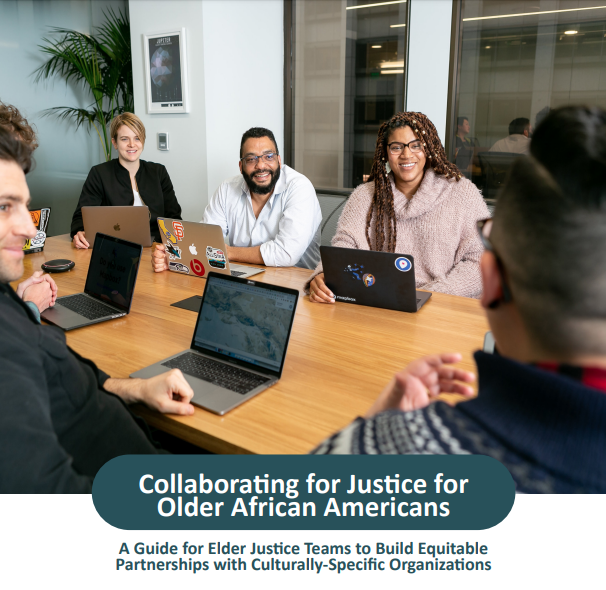“We need to serve older Black adults in ways that aren’t injurious to their family – we need to do what they want, provide options.” – Antonia Norton, Director, The Asha Project, Milwaukee, WI, quoted in Collaborating for Justice for Older African Americans
The experience of abuse in later life, the risk and protective factors, and the power and control dynamics may vary across and within cultures, as well as by individuals. Further, the intersectional identities of older survivors impact their lives and their ability to access services designed for their needs. This section offers resources that focus on understanding elder abuse in different cultural groups and provides some information on ways to increase access to accessible, culturally relevant, and trauma-informed services and resource for older victims who have been harmed by abuse, neglect, and exploitation. Culturally specific services are those that are created for, designed by, and led by the community they intend to serve. Services should reflect the cultural values, norms, expectations, and attitudes of the group served.
 The National Clearinghouse on Abuse in Later Life's Collaborating for Justice for Older African Americans guide aims to equip professionals working with older adults to build stronger and more equitable collaborations with African American community-based and culturally-specific programs. Through these collaborations, older African Americans impacted by elder abuse will have greater access to effective and culturally responsive services and supports.
The National Clearinghouse on Abuse in Later Life's Collaborating for Justice for Older African Americans guide aims to equip professionals working with older adults to build stronger and more equitable collaborations with African American community-based and culturally-specific programs. Through these collaborations, older African Americans impacted by elder abuse will have greater access to effective and culturally responsive services and supports.
Gen Silent is the critically-acclaimed documentary from filmmaker Stu Maddux that asks six LGBT seniors if they will hide their friends, their spouses—their entire lives in order to survive in the care system. Their surprising decisions are captured through intimate access to their day-to-day lives over the course of a year.









